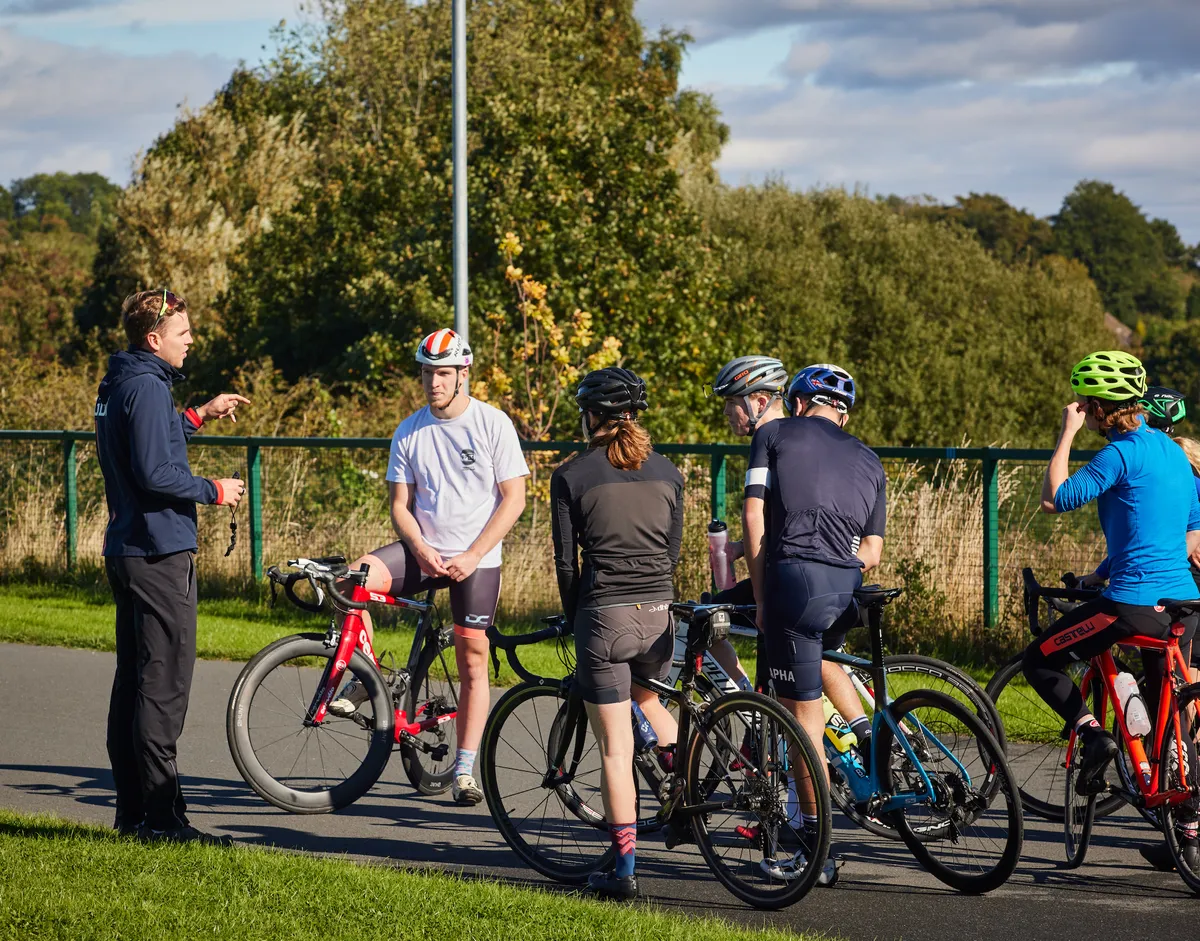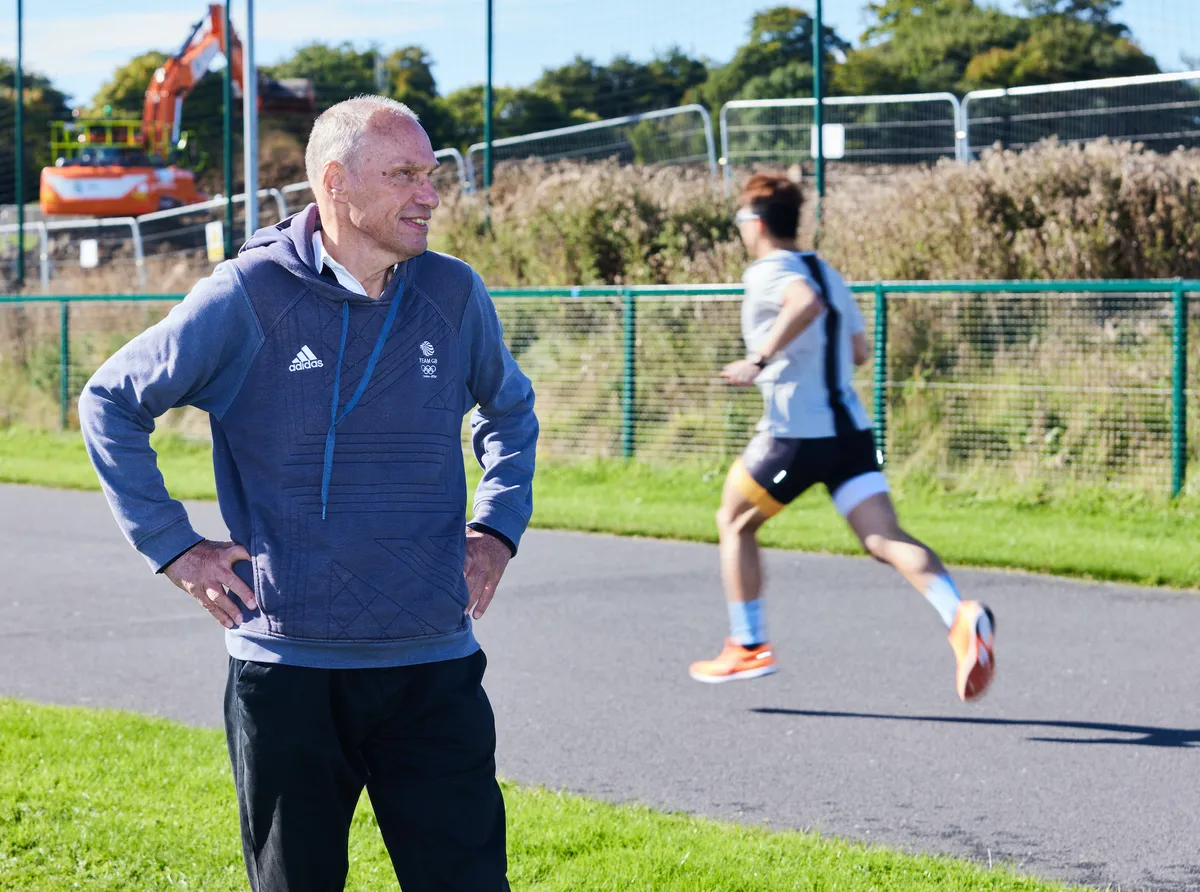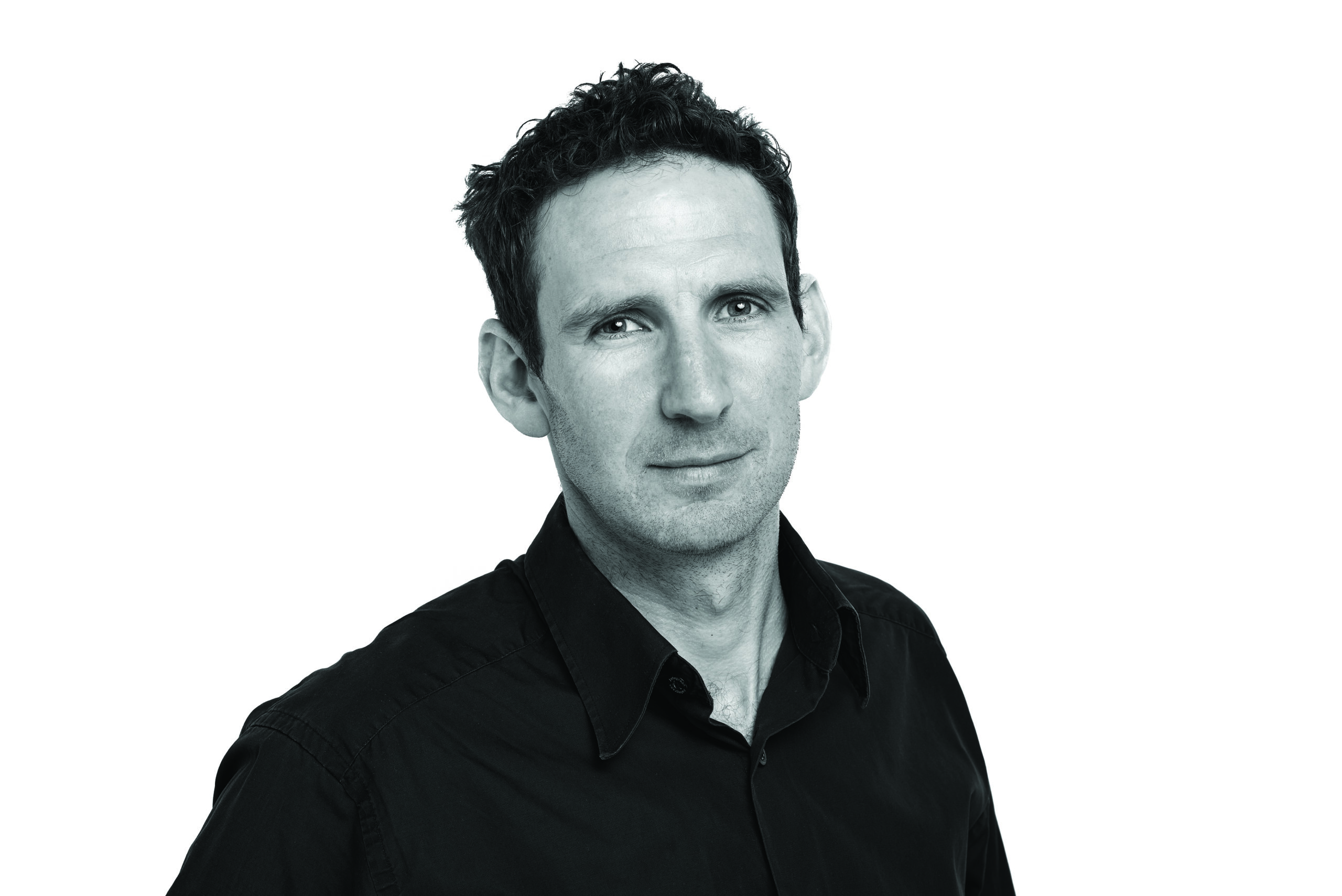Rhys Davey is a former Leeds student, training partner of the Brownlees, and husband and coach of 2018 world champion Vicky Holland. Now, he's also head coach at Leeds Triathlon.
With 220 Triathlon issue 397 including a feature on the city’s uprising, years of dominance and plans to stay at the pinnacle of the sport, we sat down with Rhys to find out a little more about the new man at the helm, and the challenge of keeping Leeds at the epicentre of the triathlon world.
220: Hi Rhys, what first got you into triathlon?
I started as a swimmer, reached the age of 12, saw a triathlon and thought it looked really fun. My dad is a keen cyclist and I’d developed a love for endurance and working hard, so took part in a local race, did pretty well, and it went from there.
We’d moved from Droitwich to Malvern in Worcestershire, I was training at Tewkesbury Triathlon Club, Ledbury Swimming Club and went to school at Kelly College sixth form [now Mount Kelly near Tavistock, Devon] with Harry Wiltshire and Flora Duffy, and coaches Robin Brew and Rich Brady. I was on the train of wanting to be a professional triathlete and go to the Olympic Games.
220: What are your memories of your time at university in Leeds?
I knew [then coach at Leeds] Jack Maitland and said I was looking at going to study at Leeds Met [now Leeds Beckett]. He said he could help with a place on the sports science course and that there was a bit of a triathlon group there.
That group ended up being Alistair and Jonny [Brownlee]’s group. Having arrived on the Sunday, I was sitting with Jack on Monday in reception when Jonny walked in having returned from Gold Coast where he was second behind Mario Mola [in the junior world championship].
Tom Bishop arrived when I did, along with a few others such as Lois Rosindale. There were about a dozen of us swimming at Leeds Beckett’s 25-yard pool three times a week and Ali had just won the world title.
British Triathlon had pulled its funding as they went away from satellite funding at the time, but Jonny and Alistair had stayed, and Malcolm Brown and Leeds Met had supported triathlon massively. You knew there was something incredibly special.
220: Why did you switch to coaching at such a young age?

I first started making the decision towards moving away from being an athlete at 21 when I got the opportunity to go on the holding camps for the London Olympic Games. Jonny and Alistair were going to St Moritz in 2012 and I’d gone the previous year in 2011 as a training partner. That was probably the first time I made a decision to support others as a training partner over racing for myself to qualify for world under 23s.
Over the next two years I started to write more training programmes and I’d also lost the love of standing on a start line. I still loved training and working hard, but wasn’t enjoying the racing as much.
Where my coaching really started to move forward was when Vicky, my now wife, asked if I could oversee some of what she was doing with her cycling programme. She’d moved to Leeds the year before and had been working with Dan Salcedo, our current head of pathways, from a distance, but felt that having someone in the immediate environment would be beneficial and loosely asked if I could help her out.
I tried to take the opportunity with both hands and spoke to as many people as I could to get advice on how to train a senior female who has just won a Commonwealth bronze medal, but equally knew she was the fourth best Brit and to qualify for an Olympics in 2016 would have to do something significant, especially on a course that was very challenging from a cycling perspective.
I was still a training partner with Jonny and Alistair and still had my own aspirations to race half-Ironman, but during that year I decided I wanted to be a coach. The next step was to get my British Triathlon Level 3 coaching certificate and it coincided with the opportunity to take a training partner-coach role with the British women. Non [Stanford] and Vicky had both been pre-selected for Rio, and that put more responsibility on their group.
At the end of 2016, the opportunity to go to Bath came up. British Triathlon were trying to develop another centre with an incredibly supportive university. It was one I couldn’t say no to.
220: How do you reflect on your time as a coach in Bath?
It was a brilliant four-and-a-half years. The university is incredibly supportive of performance sport, but when I arrived they didn’t really know what to expect. Vicky had just won an Olympic medal and it was a case of giving us some pool space and taking it where we wanted.
Triathlon existed as a very healthy student club at that time and there was also a professional long course group, which Mark Threlfall had started towards the end of his competitive career.
My vision was to merge the two while allowing there to still be a student union club. It was also a plan to get triathlon to become a performance sport at the university. When a sport reaches this status they get the full Team Bath support – the Team Bath version of the English Institute of Sport – meaning strength and conditioning, nutrition and psychological support.
It was a four-year journey and two months before I left the deputy director of sport announced that they’d like to make triathlon a priority sport. Now any athlete going to Bath can benefit from truly world class support. For a programme to be able to offer that to pathway athletes is essential, and to get Bath to that point makes me very proud.
From the perspective of competition, Vicky winning the world title in 2018 was, of course, also very special. She’s always said she’s a “one-day athlete”, but to perform consistently and end up winning the title on the Gold Coast was very special.
220: Who do you look to for guidance as you develop your coaching career?

There are three parts to this. In triathlon I’ve worked very closely with Ben Bright, our current head coach, and l also speak regularly to the other British Triathlon coaches.
It could be from whether to do 4 x 100m or 8 x 50m to whether we have 16 or 18 in a performance squad given how group dynamics work. As coaches, we’re going through the same problems, so we can share and support.
I’ve also been fortunate that I’ve had a couple of brilliant mentors. Malcolm has supported my coaching journey since 2013, given me a stopwatch to hold, showed me how to write a session and plan a block of training.
It continued when I went to Bath. We’d speak regularly, and his experience has been invaluable. I’ve also worked with Jurg Gotz, British Triathlon’s coach developer since 2014 and he’s someone who will tell me what I need to hear, not what I want to hear. That relationship is really valuable.
On a personal level there are my parents and Vicky, my wife. I often say I’ve been able to develop quickly because I’ve someone to give me feedback constantly.
220: How would you describe your coaching style, and is there any specific coaching philosophy you subscribe to?
The short answer is ensuring the athlete is getting what they need out of the environment they’re in. For one athlete that could be 18 hours a week of polarised training, for another it might be 32 hours around first and second threshold where you have to be more specific.
I don't buy too much into one or the other, it’s about what the athlete needs as an individual within the environment you’ve created – one that inspires athletes to train and gives them space to explore what they are capable of achieving. But a key part is also education. An example was Super League Triathlon. Athletes completed many transitions, which is a great opportunity, but where is the learning and education that comes with it?
220: What is your biggest challenge in your role as head coach at Leeds?
Spending the time to understand what’s made it such a successful environment. I have my own ideas and experience, but four-and-a-half years is a long time to be away. First and foremost, it’s about working with the group to understand the environment I’ve walked into.
220: Finally, what would constitute success for you in this role?
There are the obvious ones such as Olympic medals. To follow London, Rio and Tokyo is an incredible challenge, but there needs to be a continuation. However, it’s not solely about winning races.
Can we also develop athletes as individuals, so they might eventually set up their own coaching business or take up a coaching role within the federation, for example? It’s developing them through this environment, as well as maintaining the performance success we’ve had so far.
Top image credit: Helen Williams
